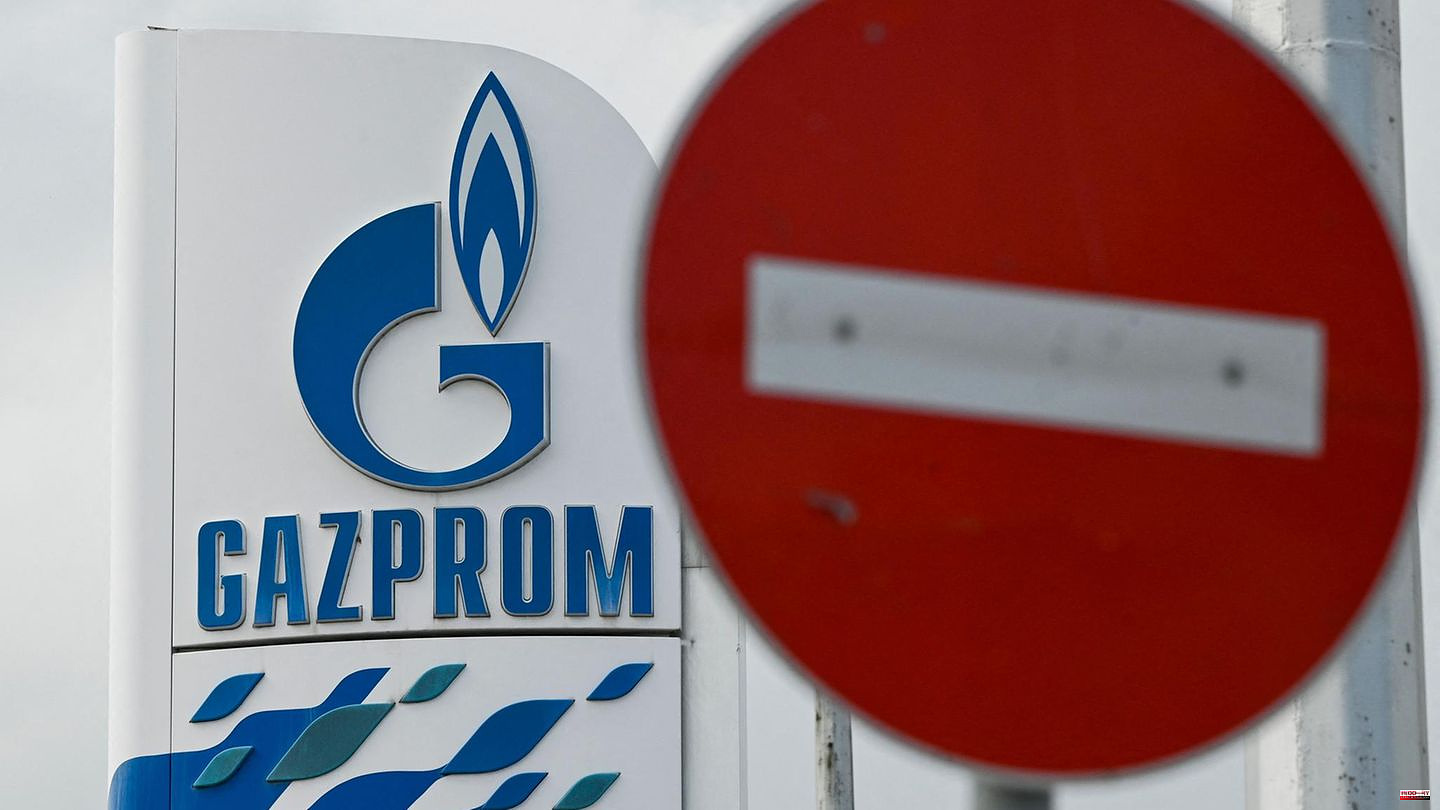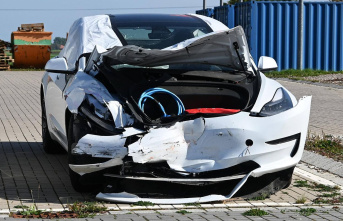Three days of maintenance work were announced, after which gas should flow through the Nord Stream 1 pipeline again. But then everything turned out differently: On Friday evening, Gazprom surprisingly announced that the gas flow would remain stopped for the time being. According to information on the Nord Stream AG website, no gas actually flowed through the pipeline during the night. The reason for the stop is an oil leak in the Portovaya compressor station, Gazprom said. Until this is stopped, no more gas can flow.
The federal government and the Federal Network Agency reacted promptly: The situation on the gas market was tense, but security of supply was guaranteed, said a spokeswoman for the Federal Ministry of Economics. Gazprom's reports were noted. "We are not commenting on the matter, but we have already seen Russia's unreliability in the past few weeks and accordingly we have continued our measures to strengthen independence from Russian energy imports undeterred and consistently. As a result, we are now much better equipped than we were a few years ago months."
The Federal Network Agency made a similar statement. "Due to the increased measures taken in recent months, Germany is now better prepared for a failure in Russian deliveries," the authority said. "But further efforts are needed." Federal Network Agency boss Klaus Müller referred via Twitter to the planned LNG terminals, the growing gas storage and savings measures. "It's good that Germany is now better prepared, but now it depends on everyone," Müller continued.
Despite the ongoing supply stop, natural gas can still be stored in Germany, said the managing director of the industry association Initiative Energies Storage (INES), Sebastian Bleschke, the German Press Agency. Last Wednesday, the first day of the delivery interruption, has already shown this.
The bottom line was that 611 gigawatt hours of gas were added nationwide that day, said Bleschke. Current figures from European gas storage operators show a similar picture for last Thursday (September 1st): Around 910 gigawatt hours were fed in that day, and 324 were withdrawn. The bottom line is that 586 gigawatt hours of gas were stored. For comparison: On Monday, the last day before the announced supply reduction, Nord Stream 1 transported around 348 gigawatt hours of Russian natural gas.
"I assume that storage can be maintained at this level, so that the 85 percent target will be reached in a few days," Bleschke continued. "If the complete failure of Russian gas transport continues into November, it will take a lot of effort to reach the 95 percent target." According to a new regulation, the storage facilities in Germany should be at least 95 percent full by November 1st. 85 percent is the target for October 1st.
The federal government wants to use various measures to ensure that the gas storage facilities in Germany are almost full at the beginning of the heating period. Germany should thus be better armed against a total failure of Russian deliveries in winter. The amount of gas stored at a level of 95 percent corresponds approximately to the nationwide consumption of the two months of January and February 2022.
"The use of gas as a weapon will not change the EU's resolve," wrote EU Council President Charles Michel on Twitter. "We will accelerate our path to energy independence."
Germany now receives by far the most natural gas from Norway, the Netherlands and Belgium. According to the Federal Network Agency, around 2,900 gigawatt hours of natural gas flowed from these countries to Germany on Thursday. For comparison: On Monday, before the announced supply reduction, Nord Stream 1 transported around 348 gigawatt hours of Russian natural gas.









